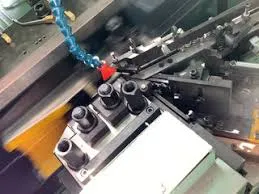
-
 Afrikaans
Afrikaans -
 Albanian
Albanian -
 Amharic
Amharic -
 Arabic
Arabic -
 Armenian
Armenian -
 Azerbaijani
Azerbaijani -
 Basque
Basque -
 Belarusian
Belarusian -
 Bengali
Bengali -
 Bosnian
Bosnian -
 Bulgarian
Bulgarian -
 Catalan
Catalan -
 Cebuano
Cebuano -
 Corsican
Corsican -
 Croatian
Croatian -
 Czech
Czech -
 Danish
Danish -
 Dutch
Dutch -
 English
English -
 Esperanto
Esperanto -
 Estonian
Estonian -
 Finnish
Finnish -
 French
French -
 Frisian
Frisian -
 Galician
Galician -
 Georgian
Georgian -
 German
German -
 Greek
Greek -
 Gujarati
Gujarati -
 Haitian Creole
Haitian Creole -
 hausa
hausa -
 hawaiian
hawaiian -
 Hebrew
Hebrew -
 Hindi
Hindi -
 Miao
Miao -
 Hungarian
Hungarian -
 Icelandic
Icelandic -
 igbo
igbo -
 Indonesian
Indonesian -
 irish
irish -
 Italian
Italian -
 Japanese
Japanese -
 Javanese
Javanese -
 Kannada
Kannada -
 kazakh
kazakh -
 Khmer
Khmer -
 Rwandese
Rwandese -
 Korean
Korean -
 Kurdish
Kurdish -
 Kyrgyz
Kyrgyz -
 Lao
Lao -
 Latin
Latin -
 Latvian
Latvian -
 Lithuanian
Lithuanian -
 Luxembourgish
Luxembourgish -
 Macedonian
Macedonian -
 Malgashi
Malgashi -
 Malay
Malay -
 Malayalam
Malayalam -
 Maltese
Maltese -
 Maori
Maori -
 Marathi
Marathi -
 Mongolian
Mongolian -
 Myanmar
Myanmar -
 Nepali
Nepali -
 Norwegian
Norwegian -
 Norwegian
Norwegian -
 Occitan
Occitan -
 Pashto
Pashto -
 Persian
Persian -
 Polish
Polish -
 Portuguese
Portuguese -
 Punjabi
Punjabi -
 Romanian
Romanian -
 Russian
Russian -
 Samoan
Samoan -
 Scottish Gaelic
Scottish Gaelic -
 Serbian
Serbian -
 Sesotho
Sesotho -
 Shona
Shona -
 Sindhi
Sindhi -
 Sinhala
Sinhala -
 Slovak
Slovak -
 Slovenian
Slovenian -
 Somali
Somali -
 Spanish
Spanish -
 Sundanese
Sundanese -
 Swahili
Swahili -
 Swedish
Swedish -
 Tagalog
Tagalog -
 Tajik
Tajik -
 Tamil
Tamil -
 Tatar
Tatar -
 Telugu
Telugu -
 Thai
Thai -
 Turkish
Turkish -
 Turkmen
Turkmen -
 Ukrainian
Ukrainian -
 Urdu
Urdu -
 Uighur
Uighur -
 Uzbek
Uzbek -
 Vietnamese
Vietnamese -
 Welsh
Welsh -
 Bantu
Bantu -
 Yiddish
Yiddish -
 Yoruba
Yoruba -
 Zulu
Zulu
Companies Specializing in Thread Rolling Machine Manufacturing and Application
The Evolution and Impact of Thread Rolling Machines in Manufacturing
Thread rolling machines play a pivotal role in the manufacturing sector, particularly in the production of fasteners, bolts, and other threaded components. These machines have transformed how industries produce high-precision threaded parts, contributing significantly to efficiency and productivity. Understanding the workings of thread rolling machines and their role in manufacturing sheds light on the broader landscape of industrial machinery.
What are Thread Rolling Machines?
Thread rolling is a cold forming process that creates threads on cylindrical workpieces. Unlike traditional cutting methods, which remove material to create threads, thread rolling machines deform the material through compressive forces. This process not only preserves the integrity of the material but also enhances its mechanical properties, resulting in stronger threads. Thread rolling machines can produce various thread profiles, including UNC, UNF, and metric threads, accommodating a wide range of specifications required by diverse industries.
How Do Thread Rolling Machines Work?
The operation of thread rolling machines is based on the principle of subtractive manufacturing but adds a unique twist through cold forging. In a typical setup, a cylindrical workpiece is fed into the machine, where two or more dies are positioned to create the desired thread shape. As the workpiece is rolled between these dies, the material flows and forms the threads without compromising its structural integrity.
There are primarily two types of thread rolling machines flat die and cylindrical die machines. Flat die machines are suitable for producing threads on flat surfaces, while cylindrical die machines are used for rolling cylindrical pieces. The choice of machine depends on the size and shape of the workpiece, as well as the specific thread requirements.
The Advantages of Thread Rolling Machines
thread rolling machine working companies

One of the primary advantages of thread rolling machines is their efficiency. The cold working process allows for higher production rates compared to cutting methods. This is especially important in industries where large volumes of threaded components are required, such as automotive, aerospace, and construction.
Additionally, thread rolling enhances the tensile strength of the material. Because the process involves deforming rather than cutting, there is minimal waste, and the resulting threads exhibit improved fatigue resistance and surface quality. This translates into more durable products, which is crucial for components subjected to high stress and strain.
Furthermore, thread rolling machines have lower operational costs. The reduction in material waste, combined with the ability to produce threads more quickly, allows manufacturers to achieve higher overall productivity. As a result, companies are not only able to meet production demands but can also pass on cost savings to customers.
The Industries Benefiting from Thread Rolling Machines
The use of thread rolling machines spans various industries. The automotive sector relies heavily on these machines for the production of screws, bolts, and other fastening components critical for vehicle assembly. Aerospace manufacturers utilize thread rolling for components that must withstand extreme conditions, ensuring safety and reliability.
Additionally, construction industries benefit from thread rolling machines, as they produce fasteners essential for structural integrity. Medical device manufacturers also leverage this technology for precise threading on surgical tools and implants, where precision and reliability are paramount.
Conclusion
Thread rolling machines have revolutionized the manufacturing of threaded components. Their ability to produce high-strength, precise, and high-quality threads efficiently has made them indispensable in modern manufacturing processes. As technology continues to advance, we can expect ongoing innovations in thread rolling techniques, further enhancing production capabilities across various industries. This evolution not only underscores the importance of thread rolling machines in today’s economy but also highlights their critical role in the future of industrial manufacturing.
